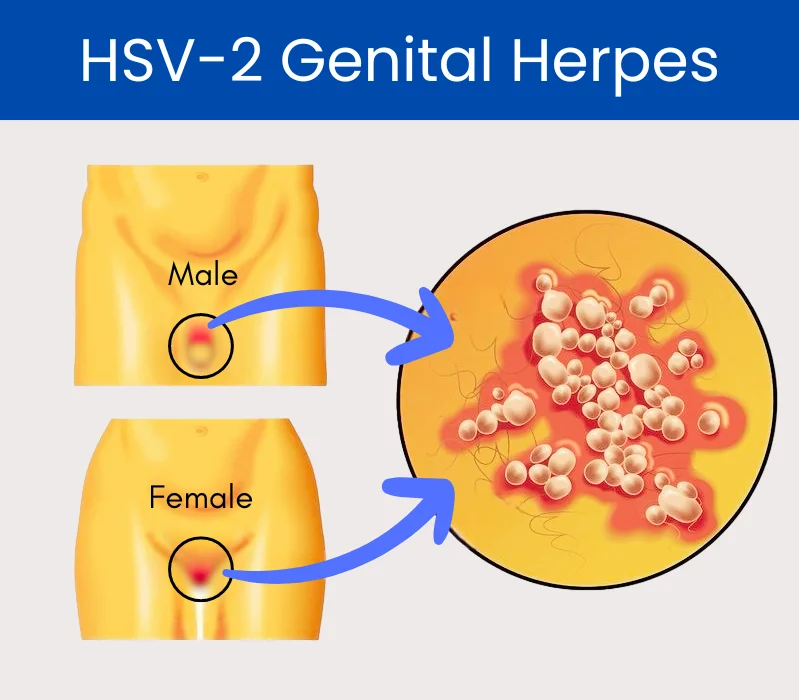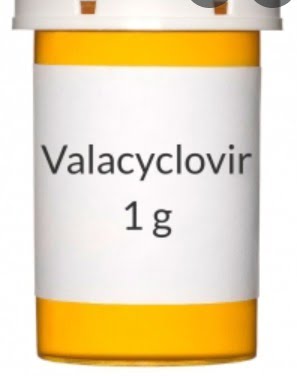Dating Someone With HSV 2: How Safe It Is?
- Updated on: Jul 31, 2024
- 5 min Read
- Published on Oct 3, 2019


Herpes simplex virus 2 (HSV2)
Herpes simplex virus 2 is a sexually transmitted virus. The virus is transmitted through direct skin-to-skin contact with an infected person. It enters the body and stays in dormant stage in spinal nerves. With certain triggers, the virus grows and causes symptoms to develop such as blisters in genital region – a condition called genital herpes.
The herpes virus can be easily transmitted to an uninfected individual during a sexual contact. Therefore, it is important for you to understand about the problems and complications that can occur as a result of the transmission of virus and also about the precautions you must take while dating someone with HSV 2 (Herpes Simplex).
See more: Genital Herpes: Causes, Symptoms, Diagnosis, and Treatment
See more: Frequently Asked Questions (FAQs) About Genital Herpes: DiseaseFix Fact Sheet
Dating Someone with HSV 2: How to identify if your partner suffers from HSV-2?
The partner may carry certain specific signs and symptoms which may indicate the presence of an HSV-2 infection. The most common sign includes presence of blisters in the genital region. Blisters also indicate occurrence of an outbreak in an individual. These blisters further grow and form sores which are extremely painful. Other common symptoms experienced by both men and women are headache, fever and tiredness.
In some cases, the partner may not experience any signs or symptoms, but may still transmit the infection. This stage is known as asymptomatic shredding. The best method to validate the presence of herpes simplex virus is through a blood test, which checks for the presence of antibodies against HSV-2 in the blood of the patient.
Is it safe to have sexual contact with HSV-2 partner?

Sexual contact with an HSV-2 partner is not safe. Uninfected partner is at a high risk of getting infection with herpes virus. But if certain measures are taken during the sexual contact, the chances of transmission can be reduced to several folds.
These steps include such as use of latex condoms, avoiding sex during an outbreak and suppressive therapy. These measures can help reduce the risk of getting HSV2 infection, but are not 100% efficient. It has been found that some people were able to avoid transmission of the disease to their partner even after a relationship for many years by considering appropriate preventive measures.
What steps can be taken if your partner carries herpes simplex virus?
If you get to know that your partner suffers from HSV-2, then you should consult a doctor to check if you may also be carrying the herpes virus. The doctor will check for the presence of sores in your genital region and also conduct certain blood tests to diagnose the infection or presence of the virus.
The blood test involves checking for the presence of antibodies against HSV-2 in the blood of the patient. This diagnosis can help the couple to take precautionary measures during their sexual contact and may also reduce the risk of further transmission of the disease.
More: What Is an HSV 2 Outbreak? How Often Do HSV 2 Outbreaks Occur?
More: HSV 2 Transmission Probability: How Is Genital Herpes Spread?
Precautions: What protective measures can reduce the risk of spreading the virus to your dating partner?
The precautionary steps which can help reduce the chances of infection when you are dating someone with HSV-2 infection are as follows:
Use Latex condoms
Condoms reduce the chances of transmission of herpes simplex virus, but they are not 100% effective. Condoms can prevent transmission only when they cover the area which shows signs of outbreak or asymptomatic shedding. Despite this, they can still be used as contraceptives.
In some cases, the friction of sex can irritate the skin and lead to the onset of HSV-2 outbreak. In such situations, water-based lubricants can be used, for example K-Y jelly and Astroglide. Oil-based lubricants should be avoided as oil can damage the latex. Lubricants containing spermicide nonoxynol-9 should not be used as nonoxynol-9 can harm the mucous membrane and easily allow entry of the virus such as herpes simplex virus and HIV in the body.
Suppressive therapy
Suppressive therapy involves consumption of antiviral drugs on a daily basis for a prolonged period of time by your partner. The antiviral drug will inhibit growth of the virus in the body and will prevent recurrence of outbreak of the virus. This will help in reducing the risk of transmission of the herpes virus. Some commonly consumed antiviral drugs are Acyclovir and Valtrex.
Herbal remedies/ Natural medicine
Some herbal remedies are proven to reduce the chances of transmission of HSV-2 from your partner. But more scientific evidences are required to support the effectiveness of these remedies. Before considering any such measure, do consult your doctor.
Herpes Self-Monitoring
Self-monitoring involves informing your partner that you are experiencing outbreak symptoms related to the disease. During an HSV-2 outbreak, the virus is highly contiguous and the chances of passing the infection are very high. The couple should avoid sex before, during and few days after an outbreak had occurred.
Sexual activities should be avoided when your partner have sores in the genital region, as sores possess high risk towards transmission of infection.
Low-stress lifestyle
Stress reduces the activity of the immune system of a person and leads to an increase in the infection. By avoiding stress, the growth of herpes virus can be controlled and the occurrence of an outbreak can be reduced. This further reduces the chances of transmission of herpes virus to your partner.
What are the chances of having HSV-2 if your partner suffers from the disease?
Studies indicate that women are at a higher risk to acquire infection than men. On an average, there are about 10% chances per year for women to get infected sexually, whereas men have only 4% chances per year to become infected.
If a person undergoes safe sex by using condoms and avoids sexual contact during outbreaks, the chances of transmission of HSV-2 from your partner are comparatively reduced. If your partner regularly undergoes the suppressive therapy, the chances of transmission are further reduced.
What health problems can your partner suffer from due to HSV-2 infection?
An HSV-2 patient can suffer from these health problems:
- Your partner may suffer from depression due to restrained sexual activity, feeling of rejection from the partner and painful symptoms. In such a situation, you should encourage and support your partner.
- HSV-2 infection also affects pregnancy, as it can lead to miscarriage, premature birth of child and transmission of herpes virus to the child during delivery. During pregnancy, the couple should consult a doctor and take necessary measures to reduce the risk.
- People suffering from immune system disorders are found to have higher incidence of outbreak and other severe symptoms.
Does transmission of herpes virus occurs due to sharing the toilet seat and hot tub with your partner?
The transmission of type 2 herpes simplex virus can only occur by a sexual contact. There is no risk in sharing the toilet seat and hot tub with your partner infected with the virus.












